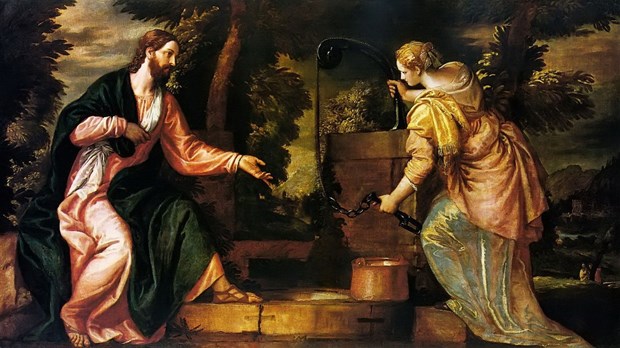
May 24, 2020 – the seventh Sunday of Easter
Acts 1:6-14
The Ascension of Jesus
In today’s reading from Acts we have a contradiction: We know that Christ is still alive and active in the world, yet, we are told of his Ascension into the heavens…
How can both be true?
Either Christ is still here with us, or has ascended to the Father and will come again in glory, right?
Perhaps, both CAN be true…
When the disciples ask Jesus if his ascension means that the Day of the Lord is at hand, he tells them, that it is not, not yet any way.
This day had been foretold by the prophets, as the time when all the barriers between ourselves and God would be removed, and the Kingdom of God would be right here…where we are!
On that day, God’s act of creation would be completed!
So, while Jesus tells the disciples that the Day of the Lord had not yet arrived, he does task the disciples, and each of us, with sharing the good news of God’s love “…to the ends of the earth.”
He calls them to be Christ in the world, to help bring about the Day of the Lord, to make the Kingdom a reality in our midst!
To share all that he taught them.
After all, Jesus was a teacher, and like any good teacher, his lessons never end, we continue to learn from him…every day.
And good teaching stays with us.
My father taught Math and Computer Science at Upsala in East Orange, NJ, this meant that I grew up as a ‘campus brat’, with life revolving around the school…and I am proud to say that I am also a graduate of the college.
It was in existence for just over 100 years, and touched many lives, producing a few authors, athletes and actors.
Along with the rest of us, who went into a variety of professions, from doctors to business people and even quite a few ministers, and…of course, teachers.
Unfortunately, the school closed about 25 years ago, with half of the campus replaced by a development, and the classroom buildings turned into a public High School.
However, even though the school itself has closed, it’s teachings have stayed with us…
And in many ways, it lives on through all of us who get together to share what he learned there, and this is not only the many teachers who graduated to teach others, but also the rest of us, who took this knowledge into our own professions.
Upsala’s legacy also lives on in the many friendships and families founded on campus, and in the stories we share, both in person and on Social Media…and through sharing these stories many new people learn about this place that was so important to all of us.
Each of us carries the story of Upsala with us…meaning that it is still with us, even though has now become a part of history.
Stories can bind us together, breaking down barriers of misunderstanding and disagreement, and can call us to reconciliation and healing in the midst of our brokenness bringing us to common ground.
Because stories teach us about each other, and about the world we share…
Whether they are stories about a school, or if they are stories about Jesus.
These stories keep memory and learning alive.
And where we find this common ground, we have a basis for growth…a starting point for moving forward, for our own ascension to making our world a better place.
This brings us closer to the time the disciples were asking Jesus about, the Day of the Lord.
In order to move us forward towards that day, we need each other’s help, which is why we are called to invite others to join us, just as Matthias was called to join the disciples, replacing the tragic Judas.
Through this, we are reminded that all of us who follow Jesus are disciples…it is not an exclusive club, but a family. We can all carry the light of the Gospel, and the more who carry this light, the brighter it shines!
Although Jesus has ascended, Christ is still with us, through the disciples, who were tasked to carry out his ministry in the world…
And we are all disciples.
Through each of us, Christ is right here in our world, and always will be.
Just as the alumni of Upsala have keeping the stories and teaching of that school alive, although it has closed.
Christ is alive when we offer each other support through the long uncertain days, when we wear a mask, and take other precautions to protect ourselves, our loved ones, and those around us…even if it is inconvenient, even if we don’t like it.
We act as Christ when we treat others with respect and compassion…even those we disagree with, or don’t necessarily like.
We are being Christ in our world when we seek reconciliation, where others foment discord, when we build partnerships that can offer us all support in the face of commons foes, not just the virus, but also ignorance and fear.
When we shine the light of God’s gracious love into all the dark places where hate can fester…we are making Christ known, right where we are, and the Kingdom comes closer to being a reality in our world.
So yes, Jesus can be ascended and seated on the right hand of God, and Christ can be right here with us, all at the same time!
This is because we are all in the same place, the risen Christ is not far off in the heavens, but in our midst…for wherever we are together, whenever we are working to help each other, and when we are gathered in praise and worship (even if Socially Distant) God is with us.
When God is with us, Christ is alive, and the Kingdom is within our grasp!









